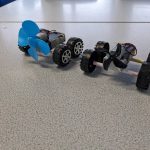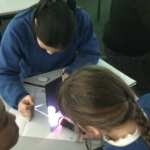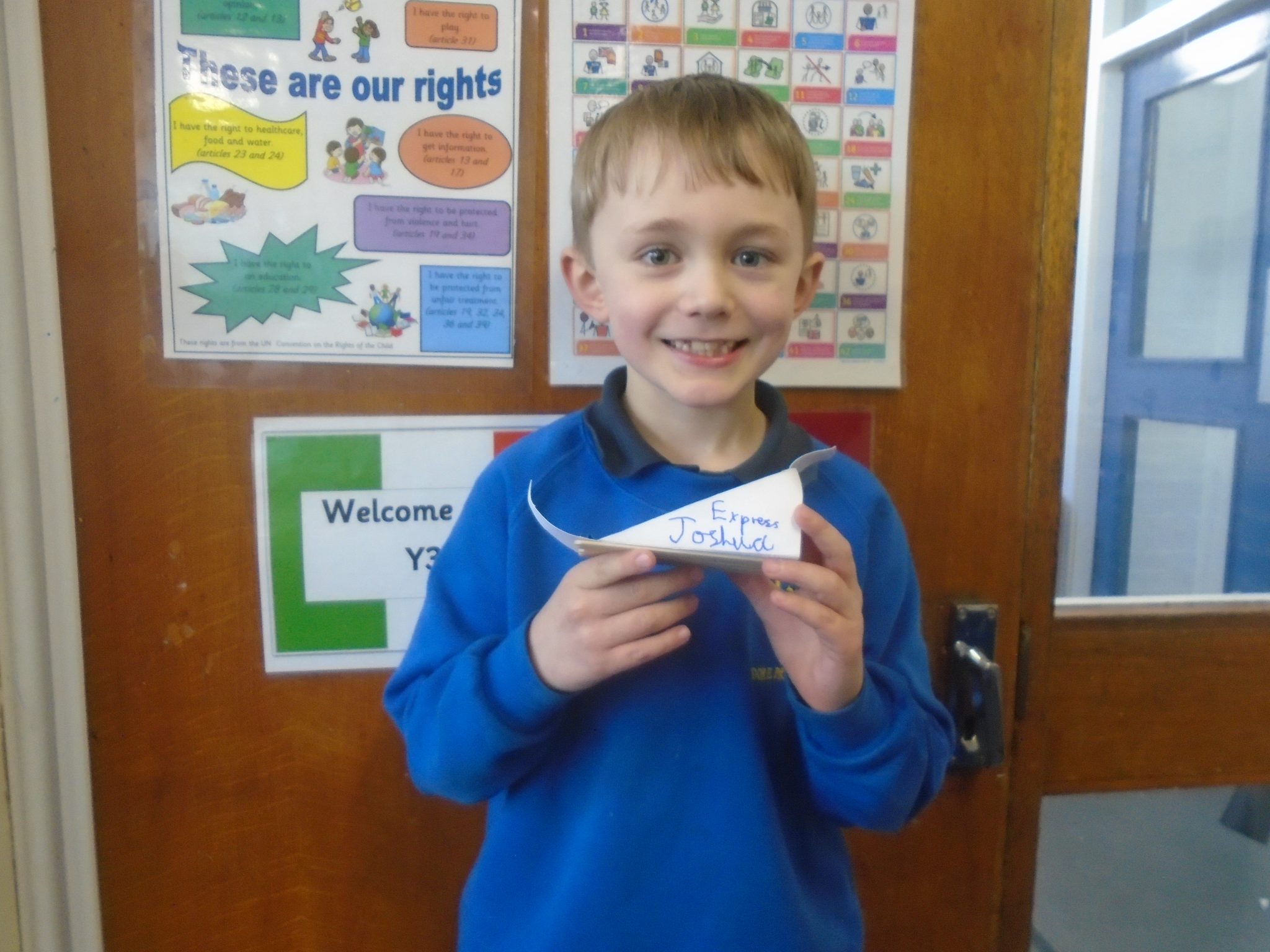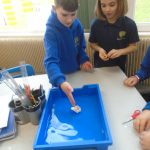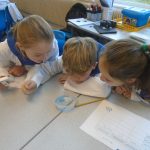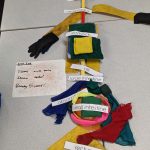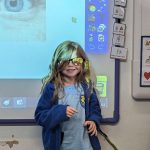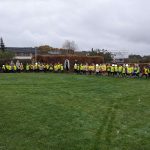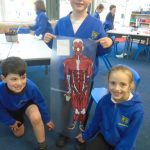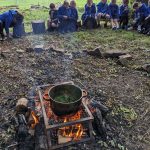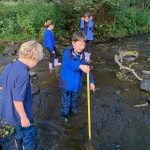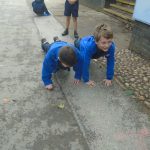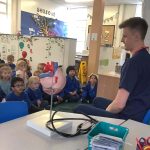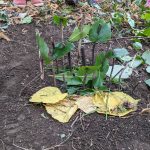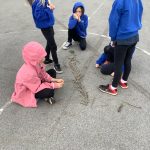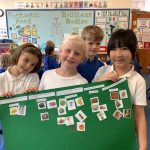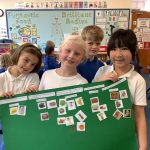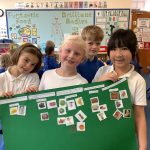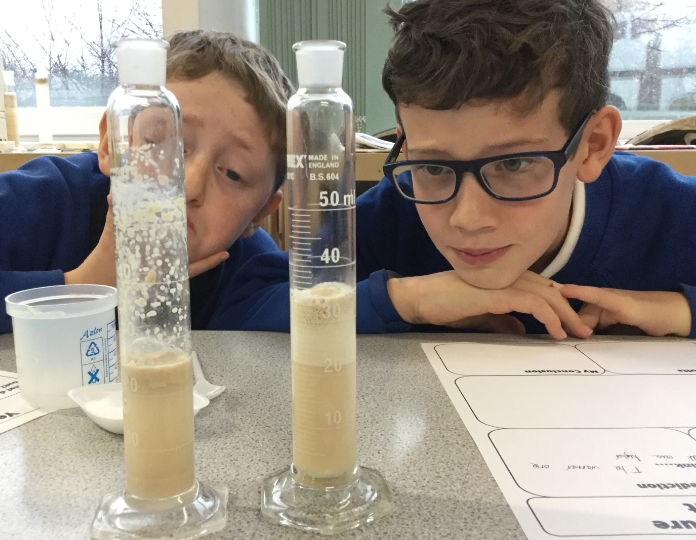
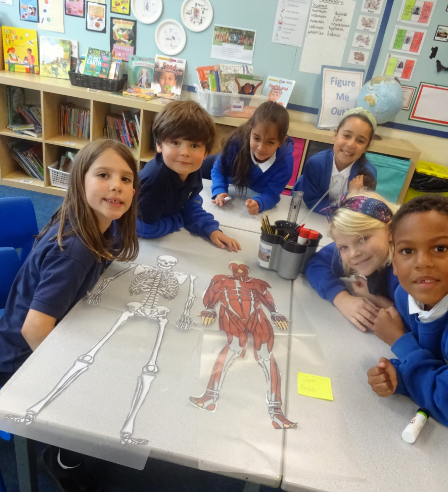
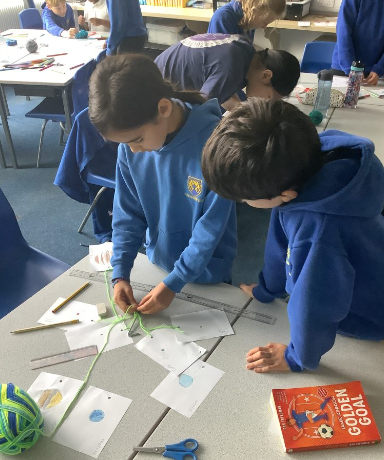
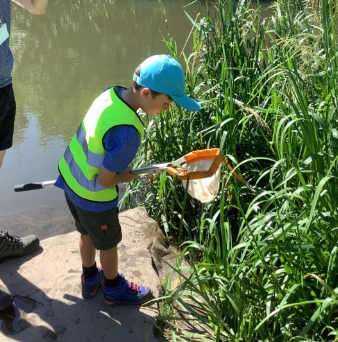
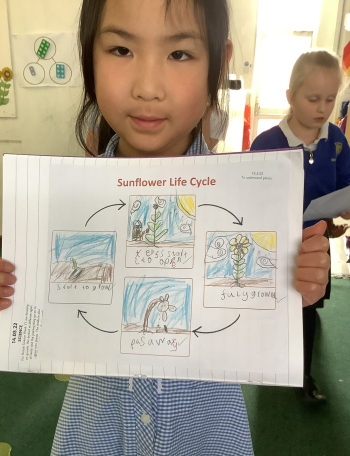
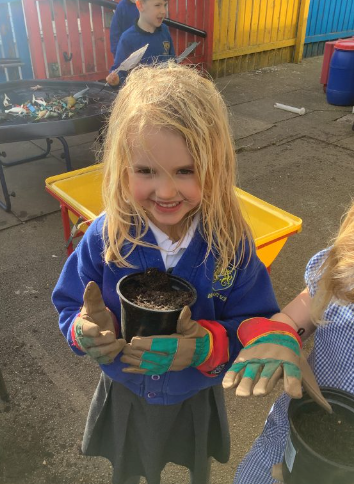
The National Curriculum (2014) states,
“A high-quality science education provides the foundations for understanding the world through the specific disciplines of biology, chemistry and physics. Science has changed our lives and is vital to the world’s future prosperity, and all pupils should be taught essential aspects of the knowledge, methods, processes and uses of science.”
This statement provides the overarching aims for our science curriculum at Dore Primary School. The National Curriculum also sets out the subject’s scope and content that will be studied in Key Stages 1 and 2. For the Foundation Stage, the Early Learning Goals similarly provide guidance to ensure children are developing their Understanding of the World.
Our science curriculum has been designed to generate fascination within learners about the world around them as well an insatiable curiosity to know and understand more. At Dore Primary School, children gain a deep understanding of scientific knowledge and concepts as well as expertise in the methods and practices of science. Science is taught through half-termly, themed Learning Journeys which allow children to see the interconnectedness of science with other subjects and give rich context and understanding to children’s studies.
SCIENCE – INTENT, IMPLEMENTATION AND IMPACT STATEMENT:
Science News:
- Y4 Flight Investigations – STEM Learning
 As part of our Learning Journey, we used Bear Grylls jumping out of a ‘flying car’ as inspiration to find out more about flight. We started off by thinking about the forces involved: thrust, drag, lift and gravity, and how these are affected by the mass of the object trying to fly. We then investigated… Read more: Y4 Flight Investigations – STEM Learning
As part of our Learning Journey, we used Bear Grylls jumping out of a ‘flying car’ as inspiration to find out more about flight. We started off by thinking about the forces involved: thrust, drag, lift and gravity, and how these are affected by the mass of the object trying to fly. We then investigated… Read more: Y4 Flight Investigations – STEM Learning - Y6 – Science – Light and Seeing
 In Science this half term, Y6 have been learning about light and seeing. Children have learnt about the physics of how light travels, reflects, refracts and creates shadows of varying sizes as well as the biology of how the human eye works. To see the physics in actions, pupils engaged in practical activities to demonstrate… Read more: Y6 – Science – Light and Seeing
In Science this half term, Y6 have been learning about light and seeing. Children have learnt about the physics of how light travels, reflects, refracts and creates shadows of varying sizes as well as the biology of how the human eye works. To see the physics in actions, pupils engaged in practical activities to demonstrate… Read more: Y6 – Science – Light and Seeing - Science Book Awards 2024
 Thank you to all the children in Y6 who reviewed one or more of the shortlisted books for this year’s Royal Society Science Book of the Year Award. Our final ratings have been decided and our feedback has been sent to the Royal Society to help them crown a winner.
Thank you to all the children in Y6 who reviewed one or more of the shortlisted books for this year’s Royal Society Science Book of the Year Award. Our final ratings have been decided and our feedback has been sent to the Royal Society to help them crown a winner. - Y3 Sled Designs
 This half term the Year 3s have been the challenged to design and make a sled that will travel smoothly and quickly across the snow for their Inuk friend Aput! After researching existing sled designs and learning all about friction, the classes began by testing the best surface for their sled’s base. They tested out… Read more: Y3 Sled Designs
This half term the Year 3s have been the challenged to design and make a sled that will travel smoothly and quickly across the snow for their Inuk friend Aput! After researching existing sled designs and learning all about friction, the classes began by testing the best surface for their sled’s base. They tested out… Read more: Y3 Sled Designs - Y3 Science – Buoyancy
 In Science, we have been investigating the forces involved in buoyancy. As part of our Pole to Pole learning journey we looked at Ernest Shackleton’s ship the Endeavour on his trip to the Antarctic. We started with a ‘control’ ship to float measured in cm squares. Then after testing its buoyancy we designed and improved… Read more: Y3 Science – Buoyancy
In Science, we have been investigating the forces involved in buoyancy. As part of our Pole to Pole learning journey we looked at Ernest Shackleton’s ship the Endeavour on his trip to the Antarctic. We started with a ‘control’ ship to float measured in cm squares. Then after testing its buoyancy we designed and improved… Read more: Y3 Science – Buoyancy - Y3 Science
 In Y3 we were lucky enough to have a special visit from some Sheffield University Scientist Students. They taught Y3 all about climate change and even did an exciting experiment with ice.
In Y3 we were lucky enough to have a special visit from some Sheffield University Scientist Students. They taught Y3 all about climate change and even did an exciting experiment with ice. - Y4 Science – Digestion
 As part of our ‘Food for Thought’ learning journey, Y4 investigated the digestive systems of humans, cows and chickens, to understand how bodies and organs adapt to different diets. For humans, we re-enacted the journey of food from its entry into the body to its exit. We used various household objects to show this, including… Read more: Y4 Science – Digestion
As part of our ‘Food for Thought’ learning journey, Y4 investigated the digestive systems of humans, cows and chickens, to understand how bodies and organs adapt to different diets. For humans, we re-enacted the journey of food from its entry into the body to its exit. We used various household objects to show this, including… Read more: Y4 Science – Digestion - Y1 Orthoptics visitors!
 As part of their science learning about senses, Year 1 have been visited by some University of Sheffield trainee Orthoptists who have taught them lots about the eye and showed them through role play what an eye test would be like if they visited an opticians.
As part of their science learning about senses, Year 1 have been visited by some University of Sheffield trainee Orthoptists who have taught them lots about the eye and showed them through role play what an eye test would be like if they visited an opticians. - Y1 Autumn Walk
 Year 1 went on an Autumn walk to look for seasonal changes.
Year 1 went on an Autumn walk to look for seasonal changes. - Y3 Science
 In our Learning Journey ‘Fantastic Foods and Brilliant Bodies’ we have been learning all about the bones and muscles of our bodies. The children were given different parts of the body and had to connect them all in the correct place.
In our Learning Journey ‘Fantastic Foods and Brilliant Bodies’ we have been learning all about the bones and muscles of our bodies. The children were given different parts of the body and had to connect them all in the correct place. - The Great Fire of DoreThis half term, we’ve focused on the bustling life of 17th-century London. Whilst exploring this topic, we created models of classic 17th-century houses and then got hands-on with some fire experiments to see how they’d hold up. It was a mix of history and science as we tried to understand why the Great Fire of… Read more: The Great Fire of Dore
- Y4 Natural Balms
 Taking inspiration from stories of some of the people of the Amazon Rainforest, and how they utilise many of the plants and fruits found in the rainforest, Y4 created a balm useful as a remedy for insect bites and stings from plantain (the grass not the fruit), olive oil and beeswax. We boiled the oil,… Read more: Y4 Natural Balms
Taking inspiration from stories of some of the people of the Amazon Rainforest, and how they utilise many of the plants and fruits found in the rainforest, Y4 created a balm useful as a remedy for insect bites and stings from plantain (the grass not the fruit), olive oil and beeswax. We boiled the oil,… Read more: Y4 Natural Balms - Y4 River Fieldwork
 To tie in with our ‘Amazonian Adventure’, Y4 learned about the features of rivers, and how water flows through them. To embed the new vocabulary and test out some ideas (hypotheses) we had come up with, we visited Old Hay Brook on a Geography Field Trip. We sketched and annotated what we could see, using… Read more: Y4 River Fieldwork
To tie in with our ‘Amazonian Adventure’, Y4 learned about the features of rivers, and how water flows through them. To embed the new vocabulary and test out some ideas (hypotheses) we had come up with, we visited Old Hay Brook on a Geography Field Trip. We sketched and annotated what we could see, using… Read more: Y4 River Fieldwork - Y3 Science – different joints
 As Scientists, we investigated how our skeleton provides: protection, support and movement. We found out about the different joints: ball and socket, gliding and hinge. We designed a playground game that had to include movement of all 3 joints. We played these games to keep us fit and healthy!
As Scientists, we investigated how our skeleton provides: protection, support and movement. We found out about the different joints: ball and socket, gliding and hinge. We designed a playground game that had to include movement of all 3 joints. We played these games to keep us fit and healthy! - Y1 Cardiologist visit
 Year 1 have been learning about the human body and healthy eating within their Learning journey lessons. They have had a special visit from a Cardiologist who talked to them about their bodies and eating healthy.
Year 1 have been learning about the human body and healthy eating within their Learning journey lessons. They have had a special visit from a Cardiologist who talked to them about their bodies and eating healthy. - Y4 Layers of the Rainforest
 As part of our ‘Amazonian Adventure’ learning journey, we studied how the flora of the rainforest can be split into different layers: emergent, canopy, understorey and undergrowth/forest floor. To conslidate this learning, children spent an outdoor learning session trying to recreate scale models of the rainforest using scavenged items.
As part of our ‘Amazonian Adventure’ learning journey, we studied how the flora of the rainforest can be split into different layers: emergent, canopy, understorey and undergrowth/forest floor. To conslidate this learning, children spent an outdoor learning session trying to recreate scale models of the rainforest using scavenged items. - Y3 Science & Outdoor learning – types of skeletons
 As Scientists, Year 3 found out about the different types of skeletons: vertebrates (back bone) and invertebrates (no back bone). These skeleton types were further classified into: endoskeletons (back bone and bones in side body), exoskeletons (no backbone and bones outside of body) and hydrostatic skeletons (no bones). We sorted different different animals into these… Read more: Y3 Science & Outdoor learning – types of skeletons
As Scientists, Year 3 found out about the different types of skeletons: vertebrates (back bone) and invertebrates (no back bone). These skeleton types were further classified into: endoskeletons (back bone and bones in side body), exoskeletons (no backbone and bones outside of body) and hydrostatic skeletons (no bones). We sorted different different animals into these… Read more: Y3 Science & Outdoor learning – types of skeletons - Y3 Science – food groups
 As scientists, we found out about the five different food groups: carbohydrates, protein, fats and sugars, dairy and fruit and vegetables. We went on a treasure hunt to find lots of different foods and sort them into the correct group. Then we investigated how different foods have different functions on the body. For example, protein… Read more: Y3 Science – food groups
As scientists, we found out about the five different food groups: carbohydrates, protein, fats and sugars, dairy and fruit and vegetables. We went on a treasure hunt to find lots of different foods and sort them into the correct group. Then we investigated how different foods have different functions on the body. For example, protein… Read more: Y3 Science – food groups - Y3 Science – food groups
 As scientists we found out about the 5 different food groups. We went on a treasure hunt and sorted lots of different foods into the correct food group. We discovered that many foods can fit in more than one food group.
As scientists we found out about the 5 different food groups. We went on a treasure hunt and sorted lots of different foods into the correct food group. We discovered that many foods can fit in more than one food group. - Y3 Science – Food groups
 As scientists we investigated the five different food groups: carbohydrates, fats and sugars, dairy, protein and fruit and vegetables. We went on a treasure hunt to find different foods and sort them into the correct group. We discovered that some foods can belong to more than one group.
As scientists we investigated the five different food groups: carbohydrates, fats and sugars, dairy, protein and fruit and vegetables. We went on a treasure hunt to find different foods and sort them into the correct group. We discovered that some foods can belong to more than one group.

